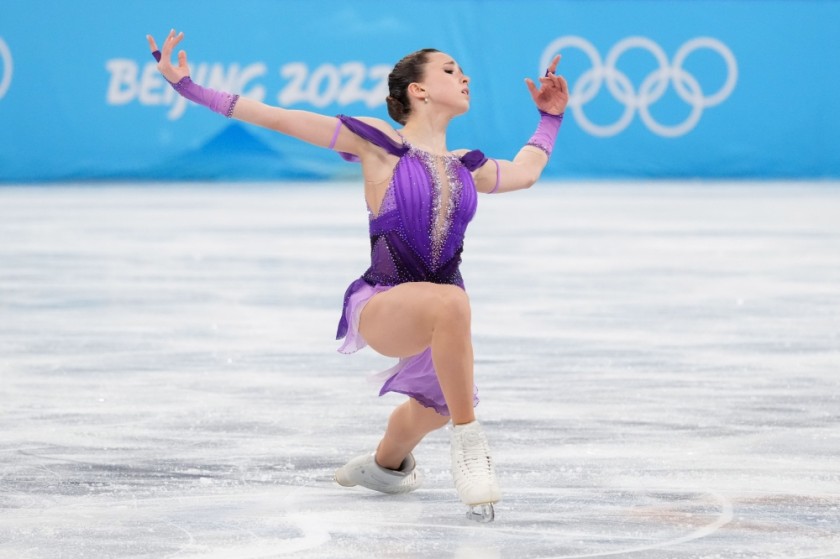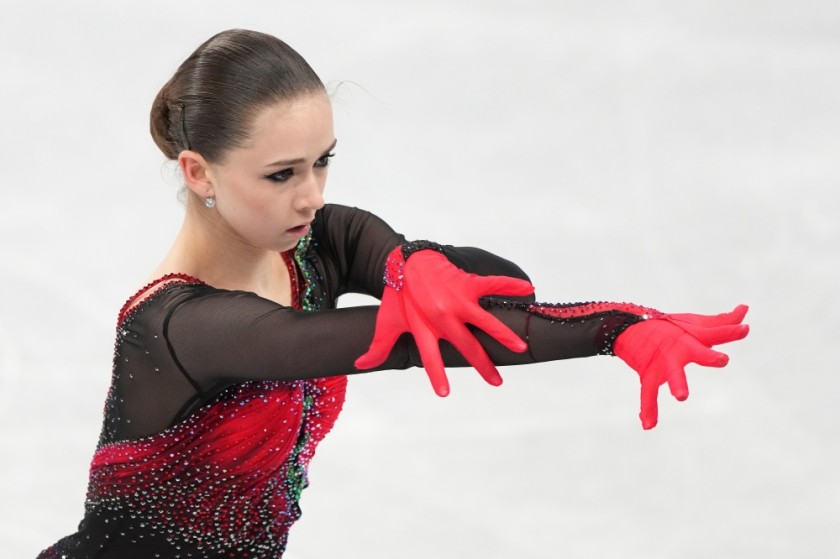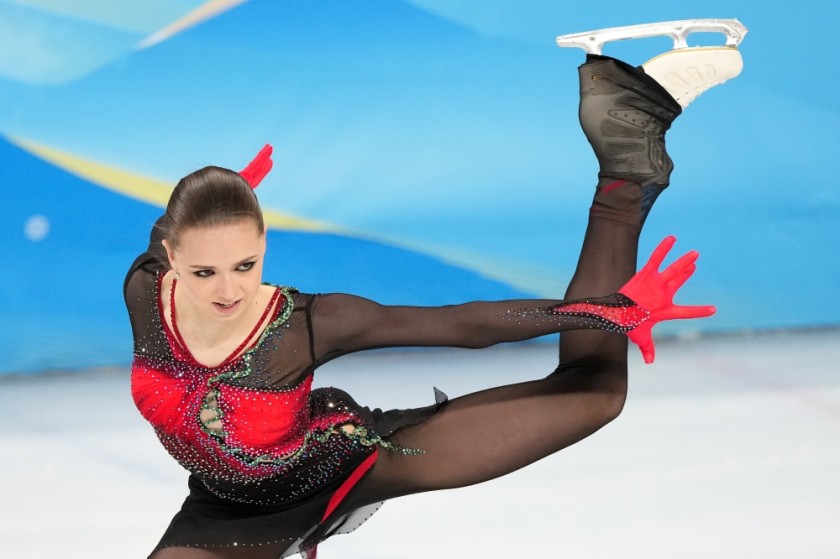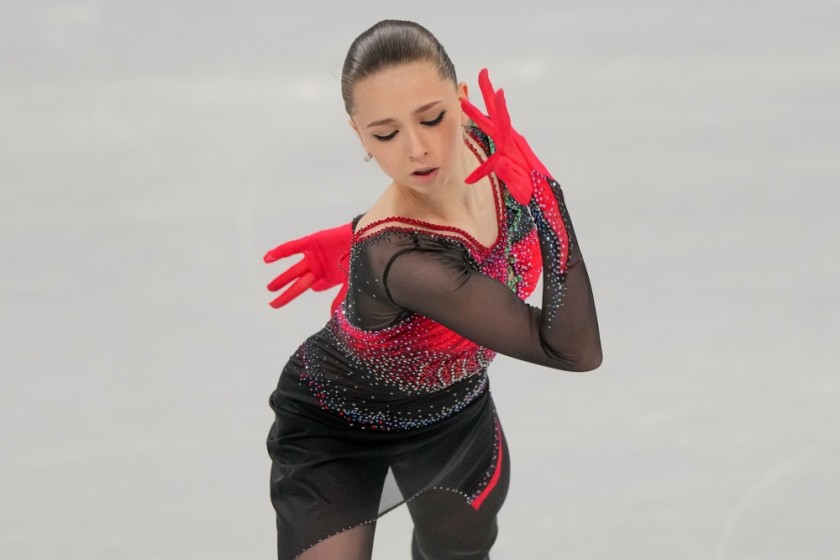

The teenage Russian phenom glided across the ice and thrust herself into figure skating history. Leaping and spinning at high speed Monday night, Kamila Valieva became the first female figure skater to complete a quad — a jump with four rotations — at the Olympics.
But if the systems in place to root out doping in global sports had worked correctly, she would not have been on the ice at all.
In December, Valieva, 15, had submitted a routine doping sample that a laboratory later determined included a banned drug. The results of the test were not returned for more than six weeks, though, and delivered only after Valieva had competed at the Beijing Olympics. This created an embarrassing spectacle in which a skater from a nation serving a multiyear doping ban for running a huge, state-sponsored doping scheme at a previous Olympics was allowed to compete on her sport’s biggest stage, only to be suspended the next day.




Russia’s anti-doping agency released a statement Friday that confirmed key dates in the matter but did little to quiet the crisis that now hovers over the Olympic skating competitions. Referring to Valieva only as “Athlete” because she is a minor, it said her disputed test had been collected at the Russian skating championships Dec. 25 and sent for analysis to a Swedish laboratory accredited by the World Anti-Doping Agency.
The Russian agency said it only learned of the positive result Monday, a delay that appeared to be in violation of current anti-doping standards, which require test samples to be returned within 20 calendar days.
That delay has left Valieva, four days after her performances lifted Russia to first place in the team competition, at the center of a growing doping controversy that threatens to overshadow the showpiece event of a Winter Olympics that were making her a household name. Her positive test result has put her gold medal (and those of her teammates) in doubt, and even prevented skaters from the United States, which won the silver, and Japan, which took the bronze, from collecting their own.
Travis Tygart, CEO of the United States Anti-Doping Agency, labeled the entire situation a “catastrophic failure.”
“It’s either an intentional delay to allow her to compete or gross incompetence and has resulted in mayhem and Russia again tainting a major competition,” Tygart said.
This article originally appeared in The New York Times.
Oman Observer is now on the WhatsApp channel. Click here







